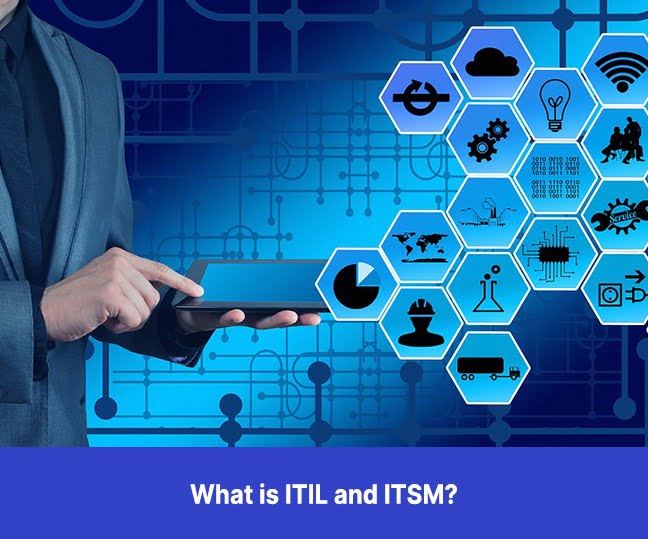Haven’t we often heard that creative marketing + good sales = a successful business model?
Well, yes, and no.
While sales and marketing are imperative for success, they aren’t sufficient today, when customers have limitless alternatives.
Businesses can no longer solely rely on yearly contracts or handshakes to retain business. And let’s not forget that the expense of acquiring new customers has skyrocketed over the last decade.
Cultural changes, customer expectations, and economic realities have led to increasing businesses shifting their emphasis to customer success.
As customer success tips gain precedence, let’s cover what it entails.
Customer success is important for businesses as it drives customer satisfaction, retention, and revenue growth. Businesses can thrive in a customer-centric market by understanding customer goals, addressing their needs, and fostering strong relationships.
So, what is customer success?
Customer success refers to proactively identifying customer challenges or queries and offering solutions and answers. It enables businesses to enhance customer satisfaction and retention, boosting profitability and customer loyalty.
Today, successful and growing businesses are already focusing on the success of customers. Expanding businesses are 21% more likely than stagnant businesses to prioritize customer success.
An increasing number of businesses recognize that the most cost-effective approach to running a business today is to ensure customer happiness and fulfillment, both outcomes of success.
Read our related blog Customer Success vs. Customer Service
Relationship between customer success and customer support

To enhance customer satisfaction, success needs to work closely with customer support.
Customer success is centered on working in conjunction with customers to help you assist them in getting more value out of their purchases and offering feedback. Thus, it drives customer experience and assures a successful future.
On the other hand, customer support involves working on the front lines in a reactive manner, handling customer queries, concerns, and requests via phone, emails, live chat, or social media. Reactive and effective customer support leads to customer success.
We don’t need to tell you how vital customer success is. What we need to do is make sure you prioritize it.
Customer Success Tips:
Businesses require three components to ensure the success of customers. They are a customer success solution (e.g., a product or software), a team and manager of customer success personnel, and a customer success strategy.
A customer success solution
Enhance customer relations with a comprehensive customer success solution. With tools like Infraon Helpdesk, you can communicate with customers anytime, anywhere, and address their concerns efficiently. Prioritize success for satisfied customers who stay with you, refer friends, and spread the word about your business. Optimize support processes, gain insights, and drive growth with a reliable success solution like Infraon Helpdesk. Elevate your customer experience and stay ahead in a competitive market.
For example, Infraon Helpdesk enables you to communicate with your consumers from anywhere, at any time, and efficiently address their concerns. It allows you to prioritize success to have satisfied customers who want to stay with you, suggest their friends, and inform their network about your business and services.
A team focused on customer success
Enhance customer relations with Infraon Helpdesk, a comprehensive solution for customer success. Communicate with customers anytime, anywhere, and address their concerns efficiently. Prioritize success for satisfied customers who stay, refer friends, and boost your business. Optimize support processes, gain insights, and drive growth with Infraon Helpdesk. Elevate your customer experience and stay ahead in a competitive market.
Formulate a plan for customer success
Formulating a plan for customer success is crucial to ensure long-term satisfaction and growth. While the specific approach may vary depending on your product or service, here are some general steps to consider:
- Establish a dedicated customer success team: Create a team responsible for managing customer relationships and ensuring their success.
- Implement customer success tools and software: Invest in the necessary tools and software to streamline customer interactions and track their progress effectively.
- Understand your clients’ objectives: Take the time to understand what success means to your customers and align your efforts accordingly.
- Develop a roadmap: Create a clear roadmap that outlines your business’s goals and expectations for the success of the customers. This roadmap will serve as a guide for your team’s actions.
- Share and implement the plan: Communicate the success plan with your team and ensure everyone understands their roles and responsibilities. Foster a collaborative environment to drive collective success.
- Analyze customer feedback: Regularly evaluate whether you are providing the necessary tools and assistance for your customers to succeed. Use customer feedback and data to identify areas for improvement.
Evolve with your business: As your business and customer base expand, be open to making adjustments and modifications to your customer success strategy. Continuously adapt to meet the evolving needs and expectations of your customers.
By following these steps, you can develop a robust plan for the success of the customers that fosters strong relationships, drives customer satisfaction, and fuels your business growth.
Personalize customer interactions
Personalizing customer interactions is crucial for success. Here are key tips:
- Understand goals: Recognize each customer’s unique objectives and tailor your approach accordingly.
- Customized outreach: Use personalized emails or calls to address specific customer needs and interests.
- Value in every interaction: Offer relevant solutions, congratulate achievements, and share resources that align with their interests.
- Segment your audience: Divide customers based on preferences and customize newsletters and marketing materials.
- Leverage data: Track customer activities to make personalized recommendations and offers.
- Extend personalization: Customize marketing campaigns and communications for better engagement. Remember, personalization builds strong customer relationships and meets their specific needs.
Cut corporate speak
Improve customer success by cutting corporate speak and focusing on clear communication. Simplify your language by avoiding complex jargon and using plain terms that customers can easily understand. Instead of getting caught up in technical details, emphasize the benefits your product or service brings to their specific needs. Actively listen to their concerns and provide direct, practical responses that address their challenges. Use relatable examples to illustrate the value your solution offers, making it easier for customers to grasp its impact.
Adapt to their language and industry-specific terminology to establish a deeper connection. Streamline processes such as onboarding and support to ensure a smooth customer experience. Lastly, actively seek feedback from customers to continuously improve your offerings and deliver maximum value. By adopting these communication practices, you can foster trust, satisfaction, and long-term customer success.
Wrapping up
As we know, support ecosystems now drive every consumer engagement, including customer support.
Businesses must stay up to date or risk being left behind. This starts with placing the customer at the center of every interaction and being prepared to respond at any point along the customer journey.
The automation tools provided by Infraon Helpdesk enable businesses to transform SMEs and help them optimize asset control, manage heterogeneous IT, increase service efficiency, and secure remote access.
Embrace customer success trends such as proactive customer engagement, data-driven insights, personalized experiences, and outcome-focused strategies to optimize customer relationships, empower your teams, and unlock new opportunities for success.
Keep in mind that some of the most successful businesses are those that guarantee their customers’ continued satisfaction and success.



















